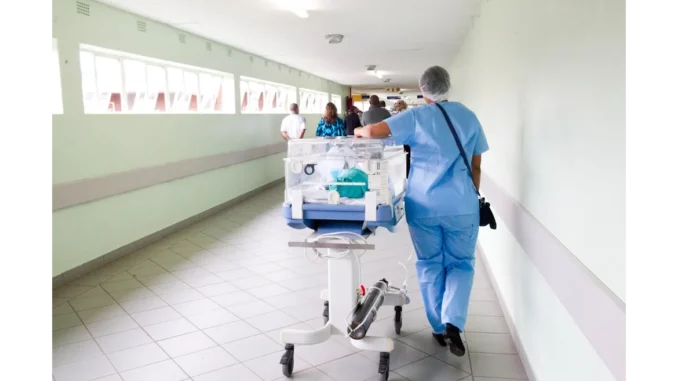
In a recent dialogue, I had the opportunity to engage in a detailed discussion with Dr. Paula Muto, a distinguished vascular surgeon, who has been at the forefront of the myriad challenges within our healthcare system. As we explored the hurdles she encounters on a daily basis, it became glaringly apparent that the system is precariously poised, necessitating immediate and decisive reform.
Dr. Muto’s narrative begins in Massachusetts, a state frequently heralded as a trailblazer in healthcare innovation. Yet, beneath this veneer of progress lies a stark reality of struggles. “Massachusetts serves as a cautionary tale,” Dr. Muto remarked, sharing her experiences in a system beleaguered by private equity takeovers and restrictive network policies. Her cautionary note was clear: if such issues can arise in Massachusetts, they can manifest anywhere.
Central to her account is the story of Steward Health Care, once a prominent hospital network, which transitioned from a coalition of Catholic hospitals into an entity consumed by private equity interests. This transformation, according to Dr. Muto, involved financial strategies that favoured profit margins over patient welfare, culminating in a bankruptcy that left many hospitals in turmoil. The ramifications for both patients and healthcare professionals have been significant. “We’ve reached a point where the fundamental expectations of care are in peril,” she lamented, highlighting how fiscal mismanagement jeopardised essential services like oxygen delivery, thereby eroding the foundational trust clinicians had in their leadership.
Dr. Muto’s insights extend beyond recounting past failures; they serve as a fervent appeal for future reforms. Foremost among her proposals is the elimination of network restrictions that hinder patients from accessing necessary care. “In Massachusetts, we have the longest wait times to see a doctor in the country. That’s a disgrace,” she asserted, attributing the root of this crisis to these very constraints. Her observations underscore the degradation of physician leadership within healthcare governance. “Our hospitals are no longer run by doctors,” she noted, lamenting the fact that only a small fraction of healthcare decision-makers are practising physicians. This disconnect has resulted in decisions that are disconnected from the realities of patient care.
A critical aspect of Dr. Muto’s critique is the economic pressure driving physicians away from private practice into the fold of large healthcare conglomerates. She advocates for legislative measures that would offer tax incentives for doctors, particularly those serving underserved communities, to establish independent practices. “It’s not just about loan forgiveness; it’s about empowering young doctors to remain in practice,” she argued, emphasising the need for sustainable career paths for upcoming medical professionals.
During our conversation, Dr. Muto also addressed the pervasive influence of private equity in healthcare. While acknowledging its entrenched presence, she proposed that regulations should mandate that profits earned within healthcare systems be reinvested into the local communities they serve. Such measures, she argued, would help sustain quality care and resources for patients, ensuring that the focus remains on healthcare delivery rather than financial gain.
A recurring theme throughout our discussion was the necessity for advocacy and heightened public awareness. Dr. Muto stressed the importance of physicians playing an active role in policy discussions and educating patients about how current healthcare policies affect their access and quality of care. “Patients need to understand that these are not just abstract policy issues,” she explained. “They have tangible impacts on their healthcare experiences.”
As our dialogue drew to a close, Dr. Muto imparted a compelling message: the need for unity and vocal advocacy within the medical community. “We need to reclaim our leadership roles, push for regulations that benefit both doctors and patients, and maintain a focus on what truly matters—patient care,” she declared. Dr. Muto’s insights act as both a wake-up call and a beacon of hope for those committed to reforming our healthcare system from within. Her call to action is unequivocal: It is time for physicians to lead the charge, engage in advocacy, and work towards creating a system that prioritises patient care above all else.


Be the first to comment